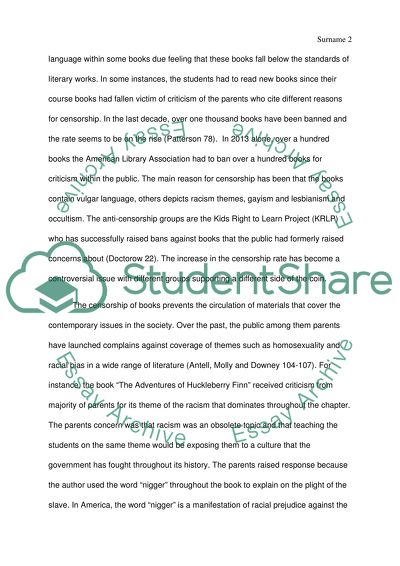Cite this document
(“Moderate censorship on books Essay Example | Topics and Well Written Essays - 1750 words”, n.d.)
Moderate censorship on books Essay Example | Topics and Well Written Essays - 1750 words. Retrieved from https://studentshare.org/english/1643576-moderate-censorship-on-books
Moderate censorship on books Essay Example | Topics and Well Written Essays - 1750 words. Retrieved from https://studentshare.org/english/1643576-moderate-censorship-on-books
(Moderate Censorship on Books Essay Example | Topics and Well Written Essays - 1750 Words)
Moderate Censorship on Books Essay Example | Topics and Well Written Essays - 1750 Words. https://studentshare.org/english/1643576-moderate-censorship-on-books.
Moderate Censorship on Books Essay Example | Topics and Well Written Essays - 1750 Words. https://studentshare.org/english/1643576-moderate-censorship-on-books.
“Moderate Censorship on Books Essay Example | Topics and Well Written Essays - 1750 Words”, n.d. https://studentshare.org/english/1643576-moderate-censorship-on-books.


